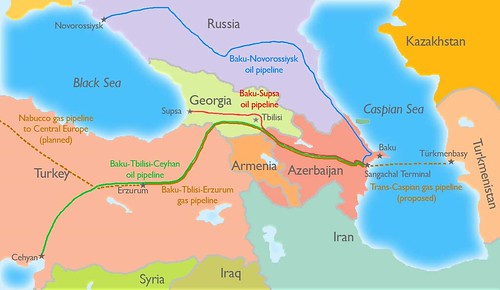This post was motivated by a discussion at Big Biofuels Blog. The question was what impact would these waste-fuel processes make on crude oil imports/consumption.
Assuming that 30% of petrochemical product-containing waste is collected for conversion to fuels, and a 15% waste to fuels conversion energy efficiency, I estimate that ~0.3% of current US crude oil consumption can be met with waste-fuels conversion.
Here is a link (Nature Network) for further discussion . Details of the calculation after the jump.
Current US oil consumption: ~20 million bbl/d10% of our crude oil use goes towards making petrochemicals. If we assume that 70% of the energy is lost, 1.4 million bbl/d of oil equivalents of energy is still left for us produce fuels (if we do not count the energy that is input while making the petrochemicals). If we use 30% of this waste to make fuel, and assume a (conservative) 15% efficiency for the waste-fuel conversion, we can get 1.4*0.3*0.15 = 0.063 million bbl/d. (or 0.32% of current US crude oil consumption).To put this in context, transportation accounts for 70% of the current crude oil consumption.Read More...
Summary only...



